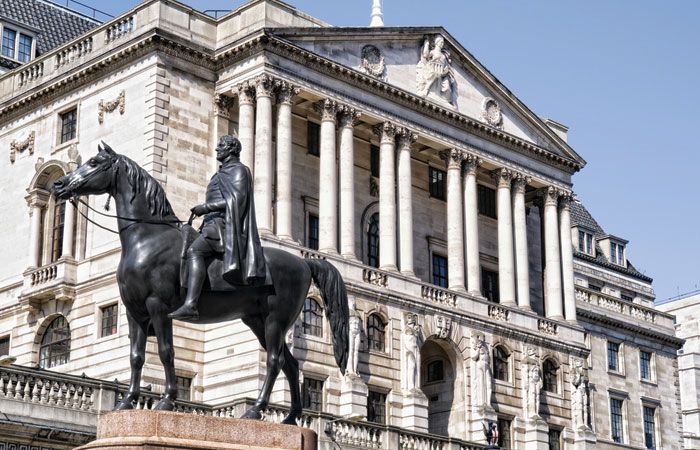
Members of the Bank of England’s Monetary Policy Committee have voted unanimously to freeze base rate at 0.1% despite the fact they expect inflation to reach 3% for a temporary period.
In their meeting on June 22 the MPC voted by a majority of 8-1 for the Bank to continue with its existing programme of quantitative easing, maintaining the target for asset purchases at £895bn.
Santander UK chief economist Frances Haque says: “The MPC’s decision to leave bank rate unchanged at 0.1% was expected given both the strong economic growth forecasts that have been recorded since the lifting of restrictions into phase three and the fact that the MPC has repeatedly said that they will look through transitory rises in inflation.
“However, April did see an above consensus rise in inflation to 2.1%, which is higher than the Bank of England’s projections for Q2 2021 set out in the May Monetary Policy Report.
“Although this increase in prices may be transitory there continues to be the possibility of an earlier rise in Bank Rate should rises in inflation become permanent.
“Further there is the possibility that the Bank of England will start quantitative tightening earlier than currently expected although this depends on the review they are currently undertaking.”
Nutmeg personal finance specialist Annabelle Williams says: “The easing of Covid-19 lockdown rules has created a surge in demand for goods and services and inflation has been rising, but it comes as no surprise that the MPC will leave its base interest rate unchanged at 0.1%.
“The Bank is reluctant to increase the base rate – which would make borrowing more expensive – while Covid-19 lingers and the threat of further lockdowns, which would hurt the economy, remains.
“The big thing to watch is inflation and whether it continues to rise and eat into consumers’ disposable income.
“Last month consumer price inflation rose sharply to the highest rate in two years, at 2.1% in the year to May.
“This could be more than just a blip.
“Prices may continue to rise for Britons through the rest of the year, as companies are also facing rapidly rising costs according to an influential survey released this week, called the IHS Markit/CIPS Composite Purchasing Managers’ Index.
“It found that the prices of components and other input costs for companies have risen at the fastest rate for 13 years.
“Firms may pass those costs onto consumers by raising prices at the checkout.”
Quilter Investors portfolio manager Hinesh Patel says: “As the Bank of England continues to hold fire on any policy decisions, it is approaching somewhat of a sliding doors moment.
“The ongoing solid economic recovery from the pandemic will be seen as a big positive, but it has brought with it a short-term headache by the way of inflation.
“By headline measures, there is no longer any need for the levels of quantitative easing that markets have become so addicted to.
“However, with every one in four pounds of public spending coming from borrowing, without indirect support from the Bank, debt sustainability will be ever-more problematic in the future.
“Furthermore, while headlines of economic growth may look great, scratch below surface and it’s right for the Bank to continue in its ‘wait and see’ mode before adjusting policy from here.
“We still need to see the full impact of furlough ending and any structural unemployment that emerges, as well as better understanding transitory vs persistent inflation, before it would be appropriate to act.
“Core inflation is likely to peak this summer, so it may even be 2023 until we see rate hikes given the Bank will want to catch-up to pre-Covid conditions.
“Quantitative easing, meanwhile, will need to gradually be reduced as the fiscal burden eases.”
Asset Intelligence investment consultant Kel Nwanuforo adds: “The Bank of England’s caution today comes as no surprise and remains very much in line with the approach taken by many of its peers around the globe.
“Despite the price rises recently recorded by the official figures, signs that inflation is becoming entrenched remain few and far between. Similarly, inflation expectations in the UK remain well-anchored at this stage.
“When one considers these aspects, the Bank’s relaxed take on its easy monetary policy makes sense. This is especially so considering that a number of the factors currently pushing inflation higher, such as supply chain bottlenecks and the impact of base effects, should ease in the months ahead.”



